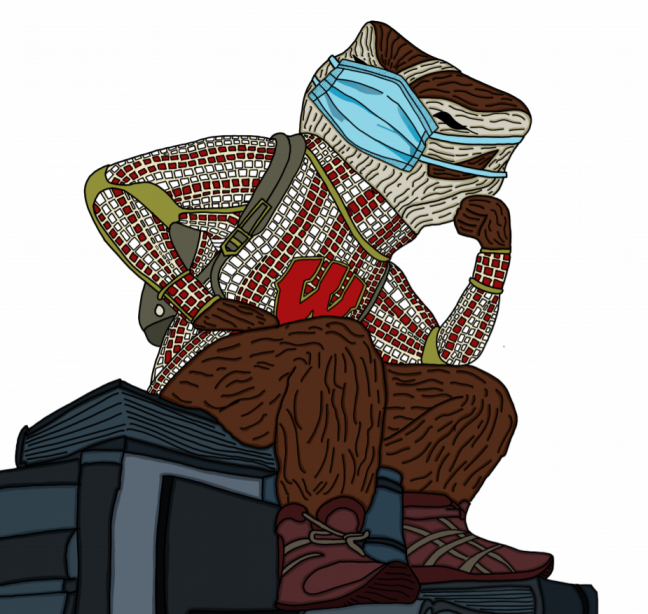Though COVID-19 has wreaked havoc on businesses, communities and schools, many people are choosing to create. Old, long-time crafters and young sewing newbies united, both reaching for a needle and thread in hopes of benefiting not only themselves, but their communities.
Whether someone is picking up the hobby for the very first time, like University of Wisconsin sophomore Ashley Dureke, or revisiting the childhood pastime, like UW freshmen Kelsey Schneider and Maria Rudurd, it’s safe to say sewing and mask-making means much more.
Sewing businesses saw this influx. Owner of Madison-based sewing machine repair and supply shop The Electric Needle, Jen Mulder said the sewing uptick made the business boom, as repair requests more than doubled.
Many people started pulling out old machines after the local hospitals called for masks, Mudler said.
“So we had a number of machines that hadn’t seen the light of day for years, ” Mudler said.
Downtown Coordinating Committee discusses Madison business recovery, expansion of Streetaries
Rudurd was one who dusted off a sewing machine. While her family’s college bar in La Crosse closed at the end of March under Gov. Tony Evers’ mandatory non-essential business closure, Rudurd hunkered down, watched JOANN Fabric and Craft Stores’ YouTube tutorials and worked. With her grandparents Chico and Linda Rudurd by her side, Rudurd provided a steady stream of income for her family who was living paycheck to paycheck. According to Rudurd, she made about $1,500 off of masks, ranging from $5 to $10.
But Rudurd faced challenges along the way. Rudurd overcame Facebook’s non-medical mask selling ban and the elastic shortage by getting innovative.
“I ordered elastic online through Walmart and it was taking forever,” Rudurd said. “So I cut up my mom’s Old Navy dresses because they were super stretchy. Then, I braided the strips and made them into the elastic straps.”
As personal protective equipment shortages impacted hospitals across the state in early April, Schneider took action as well.
In River Falls, Wisconsin, Schneider’s mom is a pharmacist. To show support, Schneider picked up her childhood hobby and sewed a handful of masks from leftover fabrics for frontline workers. From there, production only grew.
“It was my quarantine project and I wouldn’t change a thing,” Schneider said. “It’s hard to stop once you start.”
According to Schneider, she has sold a handful of her 150 masks through her Instagram account since March. Other masks were donated to Regions Hospital Outpatient Pharmacy, Vibrant Health Family Clinic in River Falls and Free Clinic of Pierce and St. Croix County. At UW, Schneider also hand-stitched a handful of nose pieces into pre-made masks.
Less seasoned sewers are also adopting the hobby. Until May, Dureke hadn’t touched a sewing machine. Dureke’s desire to sew a bucket hat, though, was just the push she needed back in May. One YouTube tutorial later, Dureke gave it a go.
Eight Wisconsin cities make New York Times’ list of areas with fastest growing COVID-19 cases
The money generated through her Instagram account and Facebook marketplaces didn’t go into Dureke’s pocket. Rather, a majority of the proceeds went to social justice campaigns, including Black Lives Matter, NAACP Legal Defense Fund, The Bail Project and an additional 11 nonprofits, Dureke said.
Though classes put sewing on the back-burner for Dureke, she appreciates her newfound hobby and encourages others to give sewing a shot.
“Just do it,” Dureke said. “The first one is probably not going to turn out the way you want, but it’s also going to be a great learning lesson.”
Mulder couldn’t agree more — not just from a business owner’s perspective. The Electric Needle’s sewing classes moved online, where individuals, regardless of age or experience, can perfect their craft together. No matter if one decides to create a face mask or a bucket hat, Mulder said she hopes others will hop on the sewing bandwagon, benefiting both themselves and others.
“Sewing can be very rewarding. You start with a flat piece of fabric, and you create something that is functional, and, generally speaking, going to last a while,” Mulder said. “Sewing can be very forgiving.”












